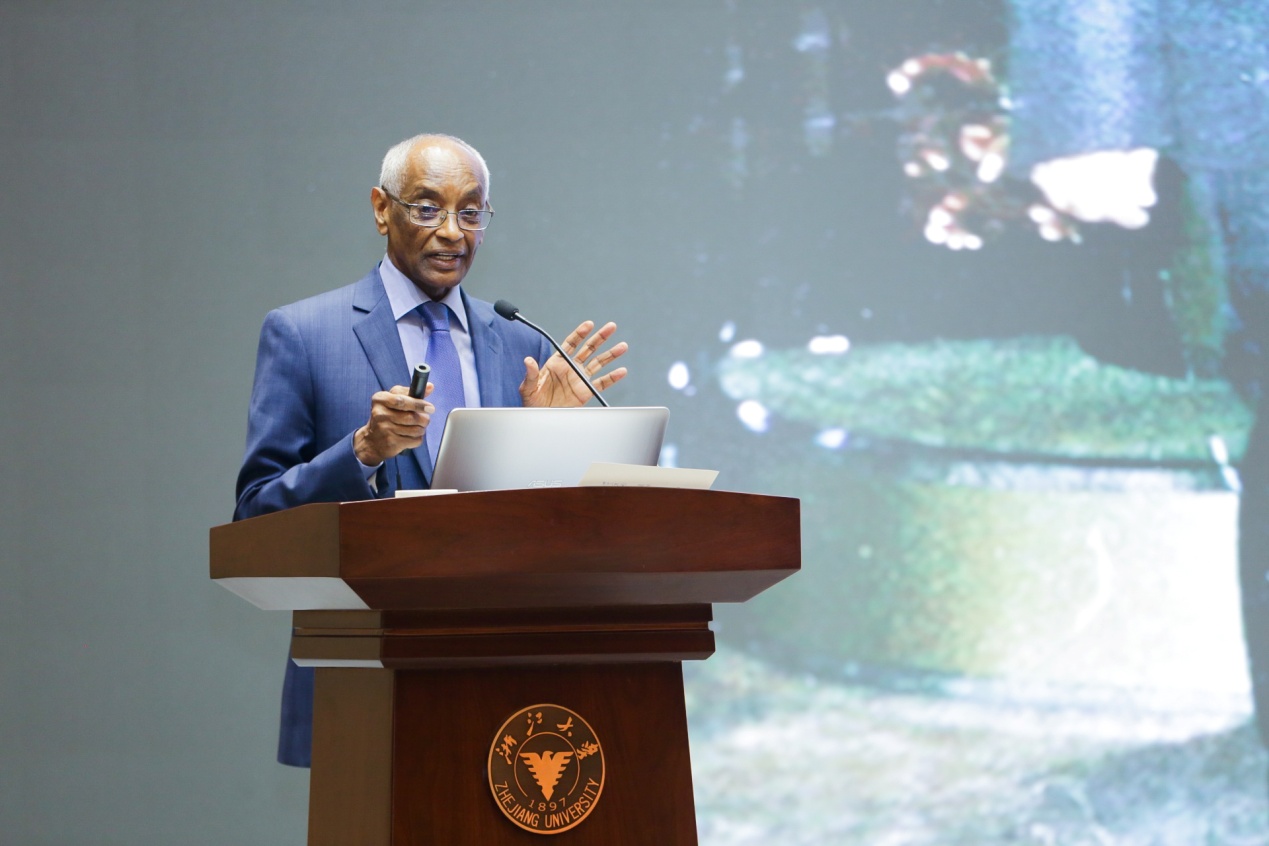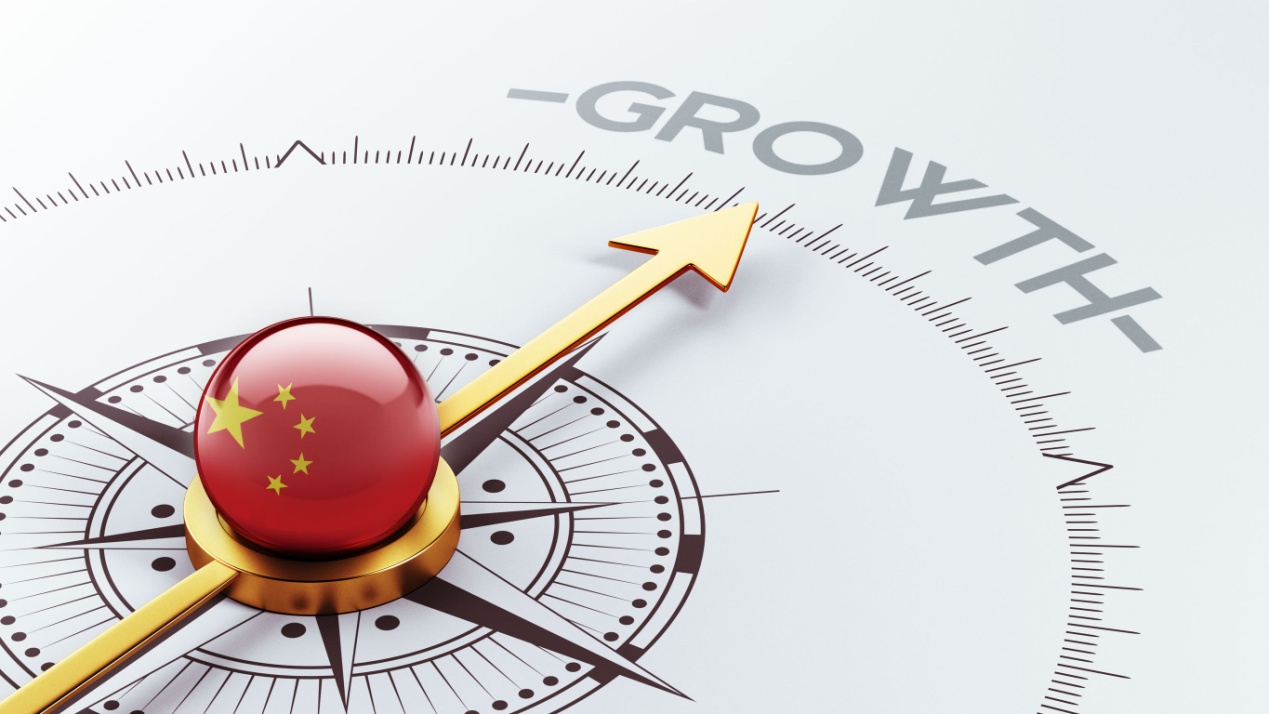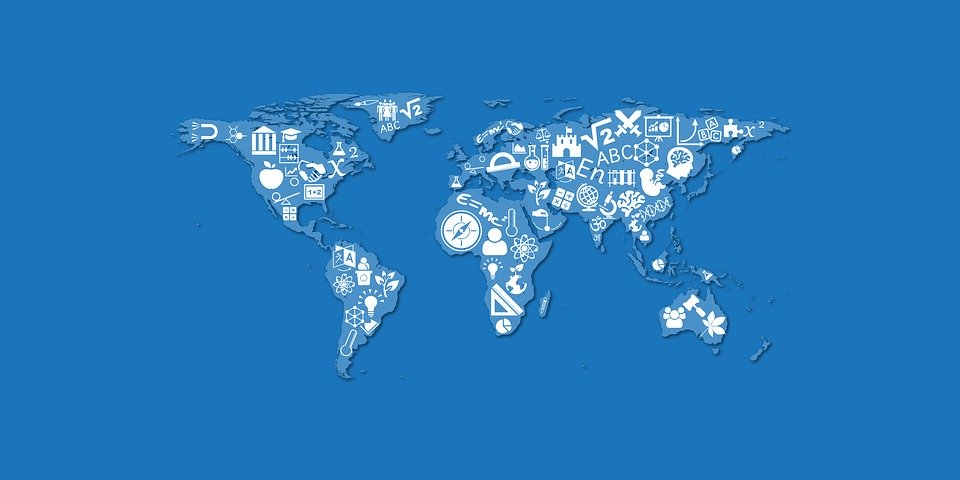Dialogue @ ZJU | With Prof. M. Hassan,President, The World Academy of Sciences (TWAS)
[Editor’s message: On the occasion of the TWAS Council meeting in Hangzhou (11 November) and the "Science for Future" workshop at Zhejiang University (12 November), Prof. M. Hassan accepted the interview by Global Communications,ZJU]

Question:How would you envision China in relation to the world that will be in 30 to 50 years?
Hassan:Of course one has to speculate. But I think it would be interesting to give two scenarios: The whole world now is struggling to achieve the United Nations Sustainable Development Goals – 17 goals, related to international cooperation for ending poverty, gender equality, healthy populations and healthy environment. It's very clear that if these goals are not achieved by all countries in the world, then there are going to be global problems which pose profound risks to life on Earth. These risks will be especially acute if we don't deal with the challenges of climate change. If the world continues business as usual and carbon dioxide (CO2) emissions continue at their current pace and there is no action to address the changing climate, then we will certainly see an increase in global warming, which will eventually lead to more melting of ice in the polar region. That in turn would be further rises in the sea level, plus a net loss of fresh water available to humanity. Life itself will be threatened, on land and sea.

Humanity has never faced such risks. Without concerted global action, we could see this disaster unfolding within the next 30-50 years.
We must also keep a focus on poverty. We've made much progress in this century in reducing levels of extreme poverty, but particularly in the Least Developed Countries we still find hundreds of millions of people struggling with hunger, a lack of water and the risks of infectious disease. These impoverished populations are the most vulnerable to the impacts of climate change.
For that reason, poverty and climate change are the two overarching challenges that we really need to address.
The second scenario is much more hopeful: There is concerted global action to limit CO2 emissions under the terms of the Paris Agreement, and all countries, working together, manage to achieve the Sustainable Development Goals.
In that case, we would find within our reach a new era of sustainable human development, or a new way of development, which is more inclusive. This era of progress would be based on sustainable energy, including of course the clean energies, the renewable energies. These are going to be the dominant sources of energy that will drive the world in the future -– more clean energy, not polluting energy.

As for China's role, it is already significant, and the country's influence seems poised to grow. Globalization can be a very important element in the relationship between nations.
This ambitious and promising project of China, the Belt and Road Initiative, is going to be a critically important factor in the relationship between countries. It will be the backbone of enhanced collaboration between countries. But in addition to the infrastructure investments in the Belt and Road region, the initiative will be complemented by a cyber element – communication and digital technologies, including big data. That would be extremely helpful to countries that are far away from the Belt and Road. This is where China comes in.
If the world is going to be more healthy and prosperous 50 years from now, what role will China play in that? More important, how will China demonstrate its leadership? No country can compete if China follows this course– that is, if it continues to develop at its current pace without significant interruption. Within one decade, two decades, China will be the dominant force in a globalised market.
Question:What kind of specific innovations should be promoted with a view toward realizing the future society?
Hassan: The future sustainable society should certainly be carbon-free, and the innovations that lead to a carbon-free society should be promoted. This will include solar energy technologies, plus technologies that relate to the development of smart agriculture, including biotechnologies, genomics, robots and drones that are beginning to show their promise in agricultural development. And also the industries that will lead to Industry 4.0 -– many countries are now have strategies and policies in place to support this. These innovations include the Internet of Things, Artificial Intelligence and also other technologies. Add to those the technologies that relate to communication.

Question: What advice would you offer to students?
Hassan: Many of the best students want to get involved in some way or another in the new technologies that are related to computer science, information systems, artificial intelligence and so forth. But I want to emphasize that the basis for development of these technologies is embedded in mathematics and basic sciences. So my advice to the students is that they should seriously consider studying the basic sciences and mathematics. Because this is where the future of new technologies is going to be.

That's not to say that students should forget about cutting-edge technologies –that remains a key focus, of course. Still, many students, and especially bright students, should continue to be involved with the basic sciences. Technology will continue to evolve at a very rapid pace – but no matter the future evolution, it certainly will depend on basic sciences and mathematics. If you have this foundation, you will be prepared to adapt as the evolution unfolds. You will be able to make contributions to the evolution. But if a research centre or a society lacks a strong foundation in mathematics and basic sciences, there's an elevated risk that it will fall behind. That means we all fall behind.
We need as many minds as possible, as well prepared as possible, to be working on development of these technologies, and on solutions to the great human and environmental challenges of our time.





